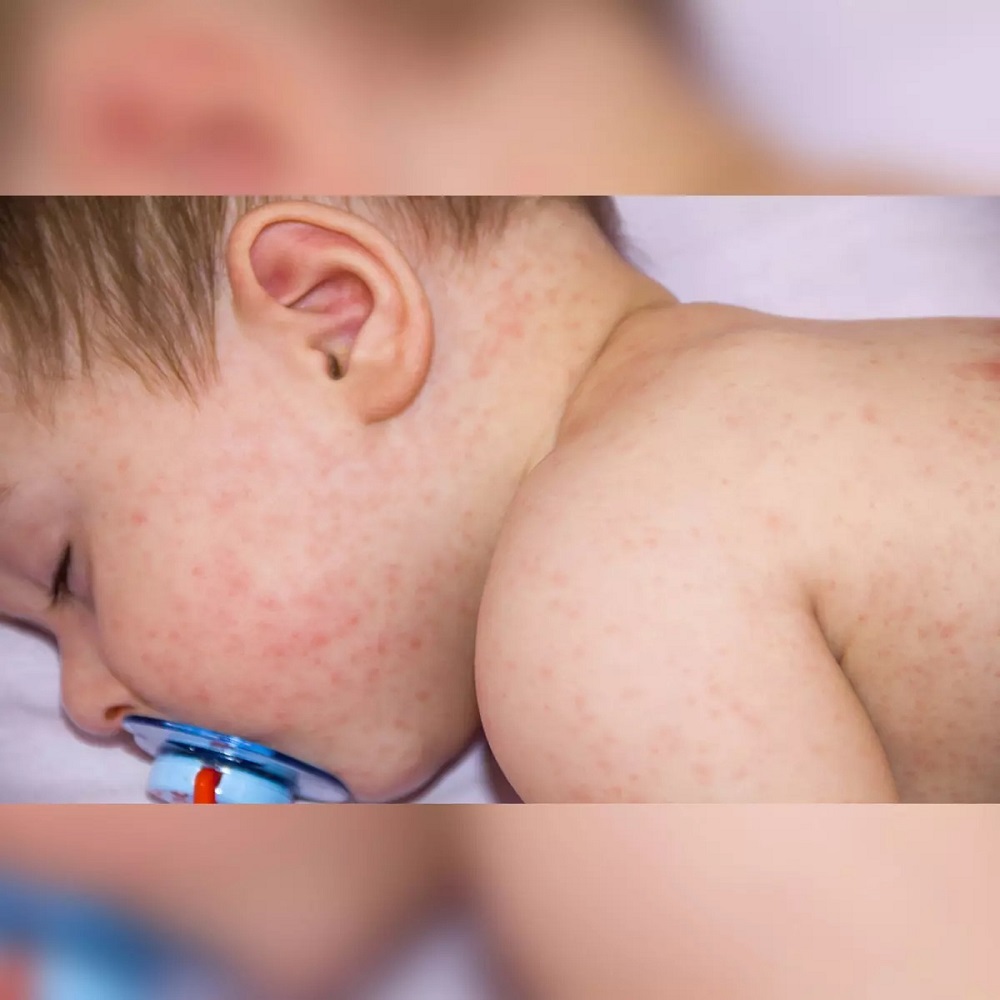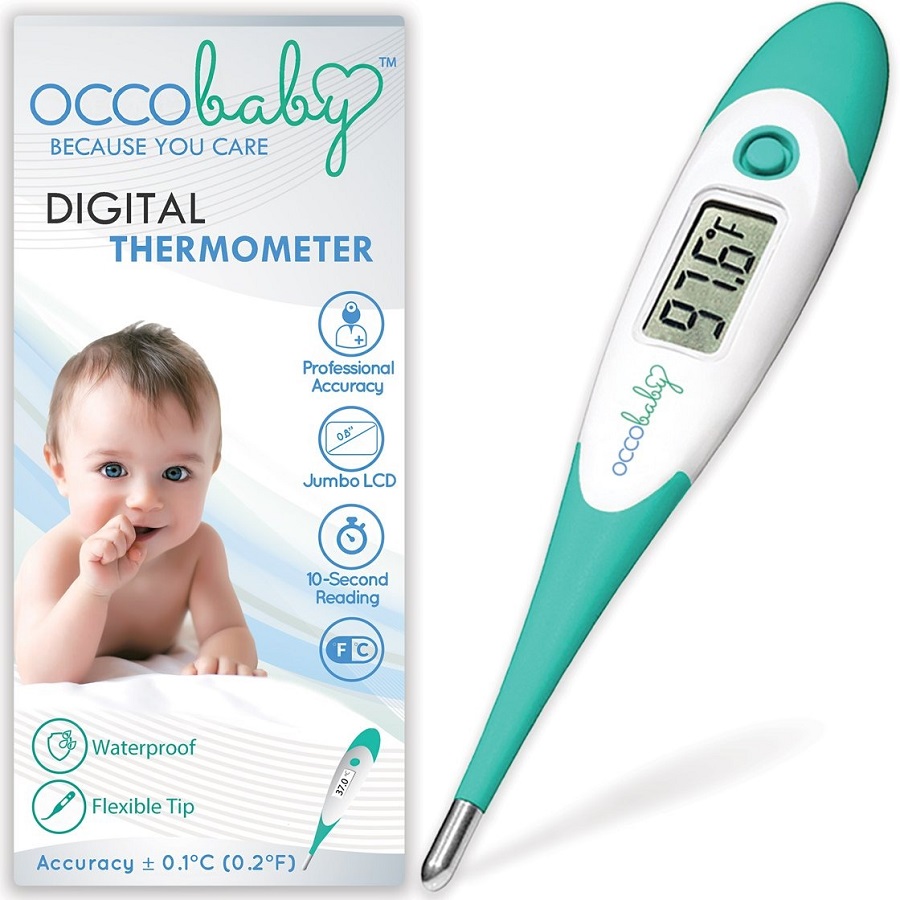Understanding Fevers in Toddlers
Understanding how fevers work is the first step in managing your toddler’s fever for health effectively. Fevers often worry parents, but they are a common part of many illnesses in children.
What Is a Fever?
A fever is a rise in body temperature, showing the body is fighting an infection. It’s a natural defense mechanism. Normal body temperature varies but is around 98.6°F (37°C). We say a toddler has a fever when their temperature is at or above 100.4°F (38°C). It’s important to know what temp to take your toddler to the hospital should other concerning symptoms arise.
How Fever Helps Fight Infection
Fever helps the body fight infections by stimulating the immune system. Higher body temperatures can make it harder for germs to thrive. It also speeds up other body responses that help in healing. Yet, when a fever gets too high, it might be a sign of something more serious. Knowing when to seek medical help is crucial for your toddler’s health.

Recognizing the Signs of a High Fever
Recognizing a high fever in your toddler is key to providing timely care. A high fever can indicate a more serious infection that may require medical attention.
Symptoms that Accompany Fevers
A high fever often comes with other symptoms that may alert you to a serious condition. Look for signs like:
- Persistent crying or irritability.
- Trouble waking up or a lack of energy.
- Refusing to eat or drink.
- A rash that suddenly appears.
- Difficulty breathing.
- Seizures or convulsions.
These symptoms, along with a high temperature, suggest that your child needs more than just at-home care.
When to be Concerned about Your Toddler’s Temperature
Parents often wonder what temp to take toddler to hospital. Be concerned if:
- Their fever is 104°F (40°C) or higher.
- They have a fever that lasts for more than 24 hours.
- Their fever is present with any severe symptoms mentioned above.
- They have a fever after being in extremely hot weather.
These guidelines will help you decide when it’s time to seek professional help for your toddler’s fever.
Normal vs. High Fever Temperature Ranges
Knowing the normal and high fever temperature ranges can guide you in caring for your toddler. Normal body temperatures usually average around 98.6°F (37°C) when taken orally. However, temperatures can fluctuate slightly throughout the day.
What Temperature is Considered Dangerous?
A toddler’s temperature becomes concerning when it reaches 100.4°F (38°C) or higher. This flags a potential illness. If the thermometer shows 104°F (40°C) or more, it is serious. This is when you consider what temp to take toddler to hospital for urgent medical help.
Reading and Understanding Temperature Measurements
When reading a thermometer, ensure it’s used correctly to get an accurate reading. Ear and forehead thermometers can be convenient, but checking with a rectal or oral thermometer may provide more accuracy. Always consult your pediatrician’s guidelines for measuring your toddler’s temp. Take multiple readings to confirm a high fever before deciding on the next steps. Remember to consider the time of day and your child’s activity level, as both can affect their temperature.

Home Management of Mild Fevers
When your toddler has a slight fever, it’s often possible to manage it at home. Recognizing when and how to treat a fever at home can keep your child comfortable and avoid unnecessary hospital visits. It’s important to monitor their temperature and behavior closely.
When to Give Fever-Reducing Medication
Knowing what temp to take toddler to hospital is essential, but before it gets to that point, fever-reducing medication can help. If your toddler is uncomfortable, seems in pain, or has a temperature hovering around 100.4°F (38°C), consider using fever reducers like acetaminophen or ibuprofen. Always adhere to the dosing guidelines based on your child’s age and weight and consult your doctor if you’re unsure.
Home Remedies and Comfort Measures
Apart from medication, other comfort measures can soothe your toddler. Here are a few to try:
- Keep them hydrated. Offer plenty of fluids, like water and electrolyte solutions, to prevent dehydration.
- Dress them comfortably. Use lightweight clothing and bedding to prevent overheating.
- Ensure a cool environment. Adjust the room temperature or use a fan to keep the air circulating.
- Give them a lukewarm bath. This can help lower their body temperature. Avoid cold baths as they can cause shivering, which raises body temp.
- Offer rest. Encourage quiet activities and ensure they get plenty of sleep to help their body recover.
By combining medication with these home remedies, you can help manage your toddler’s mild fever and keep them comfortable while their body fights off the infection.
When to Call the Doctor
Not all fevers require a trip to the hospital, but it’s essential to know when to call the doctor. If home management strategies aren’t reducing your toddler’s fever or if they’re displaying serious symptoms, it’s time to reach out to a healthcare provider.
Signs That Your Toddler Needs Medical Attention
It can be tricky to decide what temp to take toddler to hospital. Look for these key signs that your toddler needs medical attention:
- Fever of 100.4°F (38°C) or higher that doesn’t go down with treatment.
- Fever persists for more than 24 hours, even if it is a low-grade fever.
- Dehydration signs, such as a dry mouth, no tears when crying, or less frequent urination.
- Seizures or any convulsion is a definite sign to seek immediate care.
- If your toddler is very drowsy, overly irritable, or has difficulty breathing.
- A rash coupled with a fever could indicate a more serious condition.
These signs, especially in combination, indicate that professional medical advice is imperative.
Preparing to Speak with Healthcare Providers
Before you speak with a healthcare provider, be prepared with information they may need:
- Track and note down the exact temperature readings and the times they were taken.
- Record all symptoms your toddler has shown, including times and severity.
- Make a note of any medications given, including dosages and times they were administered.
- If possible, write down any recent exposure to sick individuals or trips where they may have contracted an illness.
Having this information on hand will help your healthcare provider make a quicker and more accurate assessment. Remember, being proactive and well-informed can make all the difference when evaluating whether a fever warrants further medical attention.

Hospitalization and Serious Fever-Related Illnesses
When your toddler’s fever is a part of a more serious illness, hospital care might be needed. This section will help you understand when to seek hospitalization and what illnesses may warrant it.
Conditions That May Require Hospital Care
Some illnesses with fever can be severe. Be aware that conditions like meningitis, pneumonia, or a severe urinary tract infection can get worse fast. If your child shows signs of these, like a stiff neck, persistent cough, or pain during urination, hospital care is urgent. A fever with a rash that doesn’t fade when pressed could mean blood infections like sepsis. In such cases, knowing what temp to take toddler to hospital is vital. But remember, symptoms guide the decision more than temperature alone.
What to Expect During a Hospital Visit
If you have to go to the hospital, know what to expect. Health providers may run tests like blood work or urine analysis. These tests help diagnose the illness causing the fever. In the hospital, doctors monitor your child closely. They provide fluids, medicine, or other treatments as needed. They also keep you informed about your toddler’s condition. Your child’s comfort and recovery will be the top priority during the hospital stay. Understanding these steps can ease your mind and better prepare you for the situation.
Preventing Fevers and Infections in Toddlers
Prevention is key in managing your toddler’s health. Keeping fevers and infections at bay means less worry and fewer hospital visits. Let’s explore how you can boost your toddler’s immune system and the role of vaccinations in preventing serious illnesses.
Tips for Boosting Your Toddler’s Immune System
A strong immune system can fight off infections better. Here are simple ways to help boost your toddler’s defense system:
- Serve balanced meals: Include fruits, vegetables, whole grains, and proteins to provide essential nutrients.
- Promote good sleep: Ensure they get enough rest; sleep is vital for immune function.
- Encourage handwashing: Teach them to wash hands often, especially before eating and after using the bathroom.
- Stay active: Regular physical activity stimulates the immune system.
- Maintain a smoke-free environment: Secondhand smoke can harm a child’s immune system.
By following these tips, you can help your toddler build a stronger immune system, reducing the likelihood of fevers and serious infections.
The Importance of Vaccinations and Regular Check-Ups
Vaccines are crucial in protecting children from severe diseases. They help the body build immunity without getting the actual disease. Make sure to:
- Keep up with the vaccination schedule: Follow the immunization plan recommended by your pediatrician.
- Attend regular check-ups: Use these visits to discuss any concerns and ensure your toddler is growing well.
Regular check-ups are the perfect time to ask what temp to take toddler to hospital, should the need arise. They offer peace of mind that you are doing everything to protect your child from preventable diseases. By combining immune-boosting practices with vaccinations and regular medical care, you are setting up a strong health foundation for your toddler.
